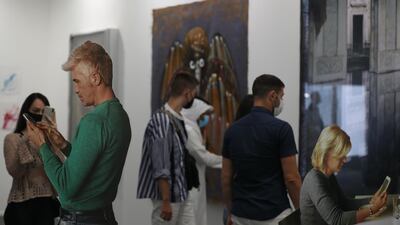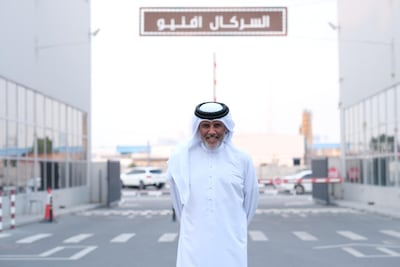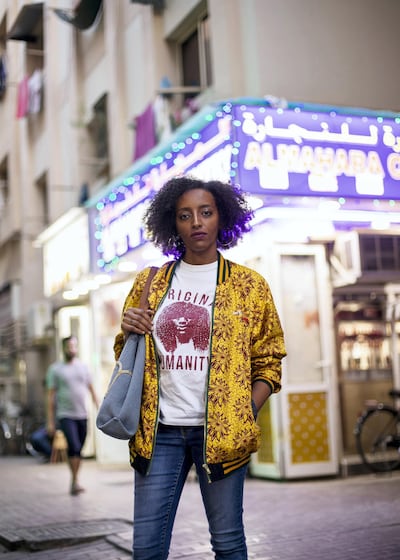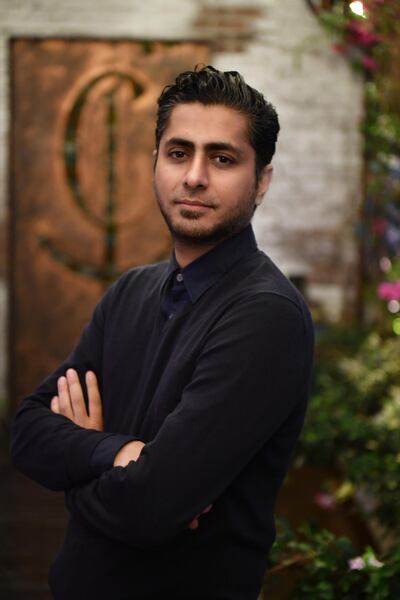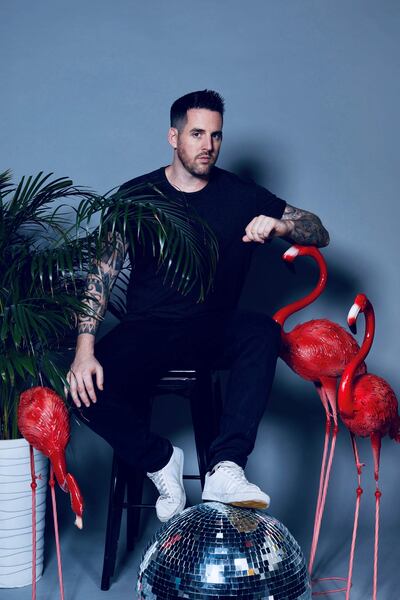Building artist hubs, launching year-long projects and establishing small music venues are only some of the ways the UAE's leading arts and culture figures believe Dubai can achieve its goal of boosting the creative sector.
A newly launched strategic programme, outlined by Sheikh Mohammed bin Rashid, Vice President and Ruler of Dubai, on Saturday, aims to increase the contribution of the creative and arts sector to gross domestic product from 2.6 per cent to 5 per cent by 2025.
Sheikh Mohammed said design, content, culture and the arts will be a "major driver for the future of our country". In his Twitter post, he also noted the programme will generate more jobs and double the number of companies in the industry.
The plan is a welcome gesture of support for several cultural institutions around the city, many of which are responding positively to the initiative.
"We have grown together with the city of Dubai, taking inspiration from the ambitions of our leaders," Abdelmonem Bin Eisa Alserkal, founder of cultural enterprise Alserkal, tells The National.
“Sheikh Mohammed’s announcement about the growth of the creative sector over the next five years reinforces Dubai’s position as a forward-looking and progressive city, and will serve to create a wider presence and impact for our city’s creative economy and ecosystem within the region and beyond.”
But, in a landscape severely affected by the challenges brought on by the coronavirus pandemic, many are eager to see how the strategy will be put into action.
"It's really nice that people want to see the creative industry progress and grow. It is fundamentally important to economies and society," says Dan Bolton, an events manager and producer who has been involved in the entertainment world for more than two decades. He says that since the plan is still in its initial announcement phase, it remains to be seen how the proposal will be put into place.
Dubai’s mission of cementing itself as a creative hub is well within reach. But what does the city need to ensure it reaches these goals?
Support for platforms and up-and-comers
Ahlam Bolooki, director of the Emirates Airline Festival of Literature, says the strategy is only the latest initiative by the Dubai government to help boost the creative sector, underscoring the leadership's commitment to making the city a welcoming place for the arts.
“The government has already been doing a great job offering the golden visa to creatives,” she says. “It’s nice to know the local art and culture scene has support all the way from the top.

“Those of us who work in the industry in the UAE really know the appetite that exists here for the arts. There are certain parts of the year where we ramp it up and there’s such a hunger for what we have to offer; there’s really a need to have more year-long avenues for exploring the arts and culture scene.”
Bolooki says it is important to bolster the talent that makes up the backbone of the creative economy, as well as the platforms that help spread their work.
"As an organiser of the literature festival and also seeing Art Dubai just take place, it's incredible to see amazing arts and works not only from the region, but from around the world, have a platform here for people who love the arts. They can come and explore and discover new works, new books, new art," she says. "I think supporting those who offer that platform and helping them expand would be amazing."
Ekaterina Plastinina, associate director of Green Art Gallery in Dubai, says it is also important to support local galleries as well as art fairs and museums. One way to do this, she suggests, is to remove value-added tax on cultural sector sales, which will help galleries and support the existing sector.
A place for grassroots artists
But then there are also the artists and the writers, Bolooki says, who need support to grow and build a name for themselves.
“It often takes a long time to get to a place where you are well known within your community and industry, then among the masses," she says. "They need support in the very beginning to establish themselves. It’s wonderful that we offer the golden visa to artists and writers who have that potential, but we also need to continue the support by waiving commercial fees, and offering more schemes and grants in order for them to sustain a living and be able to create their art.”
Fashion designer Dina Yassin, founder of Abu Dhabi label Efro & Co, says to foster a vibrant creative economy means building a place that will inspire artists to create.
“The UAE is the country of the future. Dubai is the city of the future. They’re really investing a lot in innovation,” she says. “However, if you’re going to invest in creativity as well, you need to embrace the whole aspect of it.”
When she lived in London, Yassin says she’d often walk around Camden to feel inspired. “Back then, that’s where all the artists were hanging out. You’d see all walks of life there, painting in the streets, drawing on the roads. And this is how these artists were getting discovered, because investors would come around that area and see them and make them into something.”
Dubai could use a similar location, she says; a place that is affordable and also conducive to creativity. "Where do the starving artists go? They need to be in areas where they can be discovered."
Yassin cites New York as an example, where rent-stabilised apartments and compounds are specifically made for artists who can pay only a certain amount for rent. "In those compounds, they have artist hubs where you can paint, make your clothes, photograph."
Nurturing creativity will, in turn, prove to be lucrative, Yassin believes. “The more support artists get, the more they’re going to thrive. And artists spread the word to other artists. Also, tourists will want to see this, they will want to see the creative hub of Dubai.”
PopArabia president Hussain "Spek" Yoosuf says emerging music artists will also need to have small venues to showcase their music and develop their artistic talent.
“The reason cities like New York or London are so rich with musical talent is it is inherently easy to get up on a stage and play your song for 20 people,” he says. “Rules around licensing make that difficult at present so there needs to be a holistic approach to simplify this for music artists in the UAE.”
Financial support for existing creative companies
Immediate financial support for companies that are already in operation within the creative industry could help Dubai achieve its mission, Bolton says.
"As a small business, you're trying to scale and grow, especially in the aftermath of the pandemic, and it's really difficult to hire freelancers and bring people on board," says Bolton, who runs a creative management agency in Dubai.
"Some sort of scheme to help small businesses access funds and help facilitate cash flow would be very helpful because that’s the challenge many people are facing right now.”
Bolton says another thing that is vital to creating a thriving creative economy is to attract more people to the industry. It seems like simple advice, but ensuring the presence of out-of-the-box-thinking people is the bloodline of a burgeoning creative sector.
“The only way we can do that is by sharing knowledge and skills and building a viable ecosystem for the creative industry."
